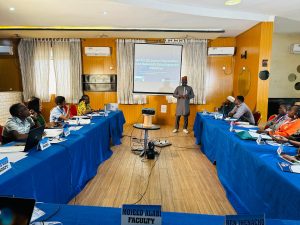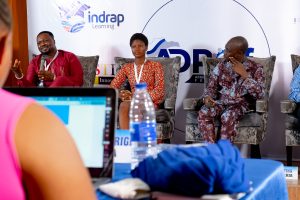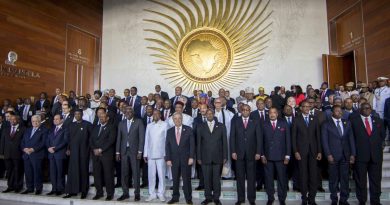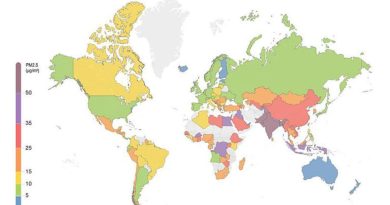African journalists unite to decolonize health reporting
As the whole world is concerned about misinformation and disinformation while dealing with epidemic diseases that attack people’s lives, health journalists have resolved to tell the African stories from the continent’s perspective.
This was the outcome of a six-week fellowship put together by a nongovernmental organization, the Africa Diseases Prevention and Research Development Initiative (ADRAP) between the months of March and April 2024.
ADRAP says it is geared to decolonize the African health reporting in one approach termed as ‘telling African health stories in African perspective’. In his inaugural speech to the face-to-face session of the fellowship of African health journalists across the continent in Abuja, Nigeria, Dr. Joseph Enegela, the founder and Chief Executive Officer of ADRAP, underlined the importance of having African health journalists telling the African health stories in African ways.

”You should work not to be called something you are not,” said Dr. Enegela. He emphasized the importance and the reason why ADRAP took the decisive step to initiate this long battle against misconception about African health systems and capacity to deal with diseases. “Dare to dream and to be laughed at, that way you may be able to break through any barrier,” he said.
African ways, so knowledgeable
Different elite African health journalists on this fellowship commended the courage involved in this kind of initiative.
Ridwan Karim Dini Usman, a health journalist from Ghana, said that it was his first time to attend a fellowship by Africans to tackle health issues that disproportionately affect Africans. “All mentors, resource persons are all Africans, it is so knowledgeable; if we continue like this, we are going to have the quality of health journalism on the continent,” Ridwan said.

The Liberian Moses Kollie Garzeawu who works with BBC sees it as an opportunity. “It is an opportunity to know the kind of diseases we have in Africa and how we can be able to tell the African stories in a very different way, in a unique way for ourselves as Africans,” Garzeawu said.
Collaboration is key
Teamwork and collaboration for African journalists and African scientists were presented as the key to the achievement of this African dreams that are on edge as mentioned by Dr. Elizabeth Ben-Iheanacho who is a faculty member. Dr. Ben-Iheanacho spoke as the moderator of a panel discussion on decolonizing health journalism in Africa during the face-to-face session in Abuja.
“We are here where we are going to have an Africa where we are able to dismantle some of these misconceptions about our system, and we are going to see that across Africa there’s equal access to health services,” said Mariam Ileyemi, a health journalist from Nigeria.
“We as journalists we have to start doing stories that are unique to us Africans, by identifying some of these local issues and giving voices to the marginalized people, we have to start telling the stories that celebrate us more,” Mariam added.
“It’s a good step in the right direction of African perspective, because of unique position of Africa as a continent that mostly is in global scheme of things, always the one that bears the brunt of the global oppression; things are not narrated from our perspective,” said Mr. Odoh Diego Okenyodo who is the head of faculty on this fellowship.
He underlined that all funding was done by purely African organizations who are ADRAP partners on the Africa Disease Reporting Fellowship (ADReF).




